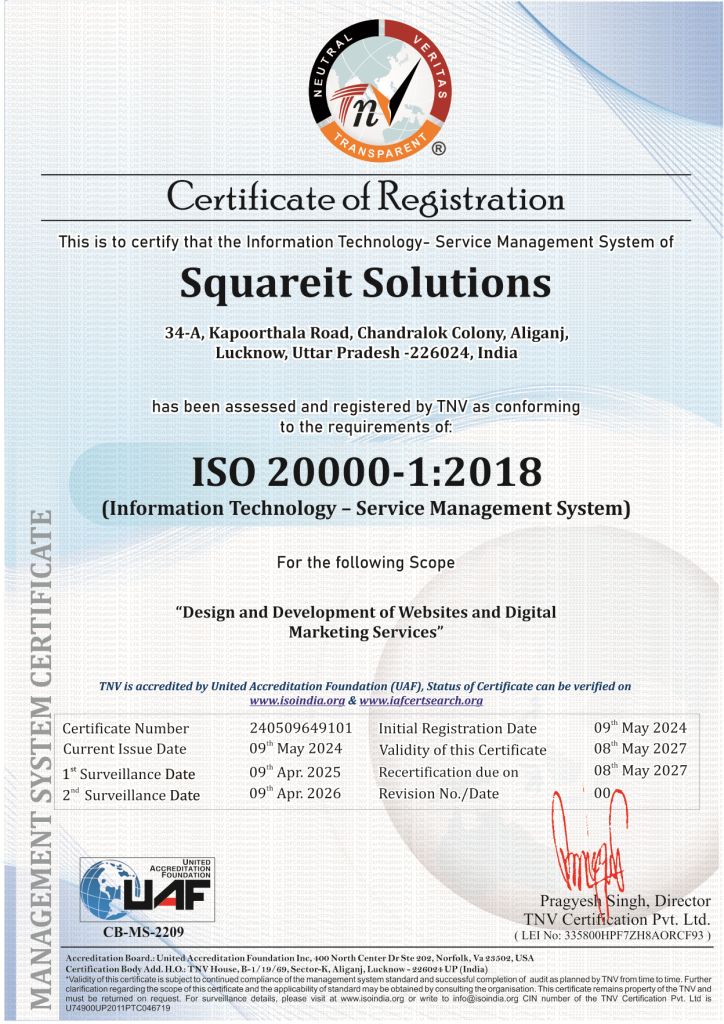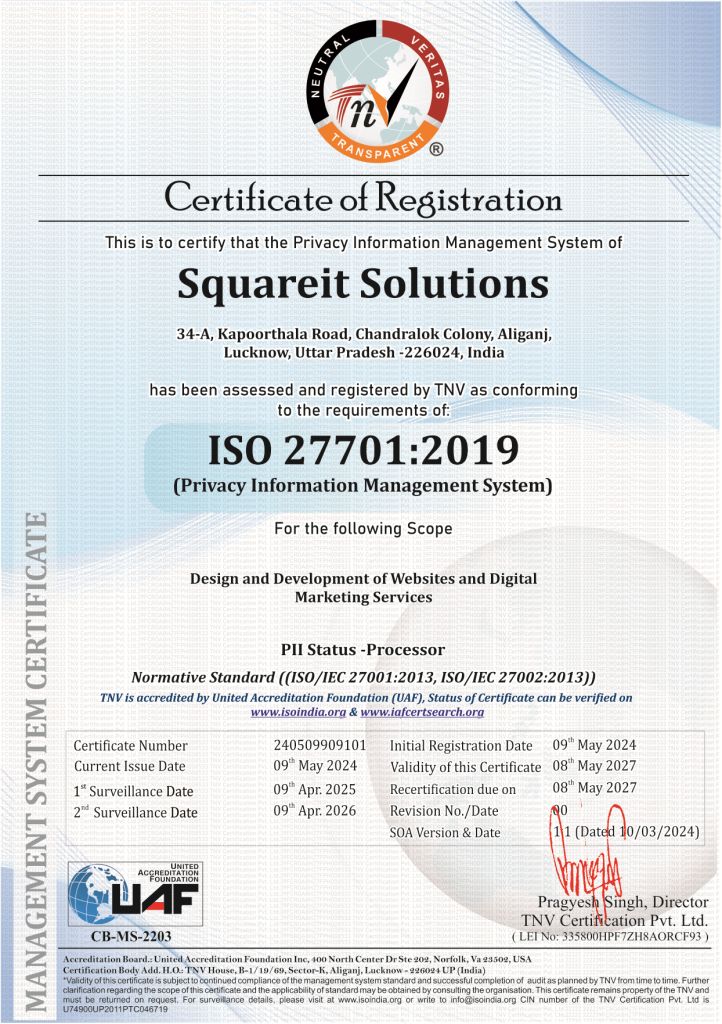SEO is a crucial asset in the world of digital marketing because it helps your product or website to reach out to a higher audience with easy and simple steps.
What is SEO?
SEO is an abbreviation for Search Engine Optimization. It involves multiple techniques which can help you to improve the rating and visibility of your site. SEO is a crucial asset in the world of digital marketing because it helps your product or website to reach out to a higher audience with easy and simple steps.
SEO has an integration with the search engine like Google, Bing, and many others which helps to gain data about the most popular searches and lists the search results in the order of the rankings.
Through SEO, it can be made possible to move up on the ranking list or on the search engine result page when someone searches for something which is related to your business or product.
The main focus of SEO is on unpaid or organic traffic on the Internet. The originating source for unpaid traffic is diversely scattered and it can be anything like image search, video search, and news search.
As one of the most trending digital marketing techniques, SEO mainly focuses on how a search engine works, what are the algorithms involved in a search engine dictate the results, what are people looking for on the Internet, the most frequently typed words or keywords searched over the Internet, and what kind of audience can be targeted on different search engines.
Why SEO is important?
-
Establishing trust with the customers:
SEO merged with User Interface ( UX ) provides a good forefront for your business together. SEO can help your business build trust organically with the customers. User experience defines the way the audience is interacting with your website.
When you have greater visibility, you can get more clicks resulting in an increase in the number of visitors and improving your SEO techniques. With time, if the user interface and SEO work together in an effective manner, your listing will be in the top 10 of the search engine result page.
User experience defines the ease of your and swift navigational access on your website. UX depends on the overall look, branding, representation, and accessibility of your website. The better the UX part is, the more effectively and fruitfully you will be able to use SEO for future growth.
A combination of flawless SEO and UX assures that your website will gain a lot of organic traffic. Organic searches are those search results which are visible on the SERP surely because of the user's search. That is why organic traffic is also known as unpaid traffic because you did not pay to improve your ranking on the SERP.
It is always important to meet the expectations of the visitors if you are able to deliver what the audience is looking for, in that case, building trust and improving the ranking on the SERP is a sure thing to happen.
-
Visibility booster:
There are several advantages of using SEO, gaining visibility in an organic way is one of the best ones. Gaining visibility organically means that your website has improved based on what people have searched which implies that you have pitched the right idea to your business page.
Customers can have an access to your website based on their needs. The idea about what the customers are looking for and what more can be integrated into the website to improve ranking can be understood through keyword analysis.
Customer engagement is a key role in the success of any digital marketing strategy and it can be achieved by providing what the need of the hour is. SEO helps the potential leads to see you ultimately resulting in greater customer engagement.
Local SEO uses the location of your business when it is displaying the search result. It adds more precision and rational methods of reaching out to any goods or services. Your location can surely have a huge impact on your visibility.
Whenever the customer is searching with the suffix “near me", local SEO helps the customer to find the best suggestions in that geographical zone.
How does SEO work?
The working of SEO is totally based upon the working of a search engine, first, you need to understand how a search engine works in order to understand ways where you can optimise its working for your business.
Search engines help provide results to queries that people have and they search it over any platform. The searching is based on computer algorithms that help to find the accurate result in reference to the searched query.
These algorithms help decide the ranking of various websites shown in search results keeping various parameters like frequently used keywords, most visited websites, bugfree webpages, etc.
There are three steps in which a search engine works:
1- Crawling
2- Indexing
3- Ranking
1- Crawling
Search engines use web crawlers to find new pages and register the data in them. These web crawlers are also known by the name of 'spiders' or 'robots'.
The main functions of these spiders are to discover any new content published over the Internet and also to revisit old websites and web pages periodically to check if there has been an update in the data available on that website.
The crawling procedure is done with the help of the links that these crawlers have already discovered. Suppose if there are multiple links available over the webpage, then the crawlers will access all those links from the source page.
2- Indexing
After crawling, the second step is indexing where the decision is made after the crawlers have discovered a new link or updated data. Search engines decide if they are going to use the content or not which has been recently discovered by crawlers. If the content looks useful, it will be added to the index of the search engine.
Once it is stored in the index of a webpage, the same link or address can be retrieved when something relatable is searched. The content must be unique and meaningful in order to get indexing from a search engine.
A web page might not be placed in the index if:
-Its content is considered a duplicate.
-Its content is considered low value or spammy.
-It couldn’t be crawled.
-The page or domain lacked inbound links.
3- Ranking
This is the third and the most critical step which happens after crawling and indexing are done. The ranking is done based on more than 200 signals which serve as a helping parameter for understanding the utility of content which completely compliments the three essential elements of SEO- technical optimization, on-page optimization and off-page optimization.
SEO ranking factors:
-
Maximum search keywords are present in the titles
Search engines base their ranking on a number of keywords placed in the content and also mentioned in the title of the content. The more widely used keywords a content has utilised meaningfully, the better the ranking it will get.
-
The loading speed of the webpage
The loading speed of the page is also important. Search engines calculate the time a page takes to open when it is being clicked. Webpages with large load times are not highly ranked. The ranking is also affected by the UX of the webpage. A good webpage must have a fast loading speed and must be user friendly in order to get a good ranking.
-
Website reputation
The website should own a reputation in reference to the content which has been searched. The higher the relevant field reputation is, the better the ranking of such websites.
How do you rank higher on google?
There are multiple steps you should take care of when you aim for improving your ranking on Google. Some important steps have been mentioned below:
1- Improve your On-Site SEO
Make sure you place the keywords in the right place. The best placement is generally at the beginning of your title. This is called "frontloading" of the keyword.
After this, you should also place your keyword 2-3 times on your page but make sure it is not keyword stufffing.
2- Add LSI keywords to your page
LSI keywords are those words and phrases that are related to the topic of your page.
3- Monitor your technical SEO.
Technical SEO is all about making sure that the loading speed, the user interface and the user experience of your page are working right. The website must be easy to access over a mobile or any other device as well.
4- Reduce your bounce rate.
The bounce rate is considered high when people land on your page and go back very quickly. Google observes the amount of time a user is spending on any webpage and if the time spent is too little, it denotes that either the content is not relevant or it is precisely not what the search intent was about.
5- Use more relatable keywords
Increasing the number of relatable keywords helps Google to display your website on multiple search results. It is again one of the finest and smartest ways to gain an upper hand on the ranking chart.
Is SEO better than Google Ads?
They are both beneficial under different situations. If you are looking for quick but short term results, Google Ads are more suitable for fulfilling that purpose whereas if the intent is to sustain a long term Google ranking, SEO is a better option.
If you are looking forward to SEO, it will provide you with fewer budget constraints but will cost you a significant amount of time. On the other hand, if you want to get highlighted on the listings very quickly and budget is not a concern, Google Ads is preferable.
It is advised to focus on Google Ads, in the beginning, to get to the top of search results quickly meanwhile working on your SEO ranking and once your SEO ranking improves, you can lower your Ads budget with respect to that.
Knowing all this, you have the perfect idea about SEO and how it can be precisely used to boost your digital presence. Focus on all the important factors and keep updating your SEO techniques with the changing trend to always prove your mettle in the online era of business.






